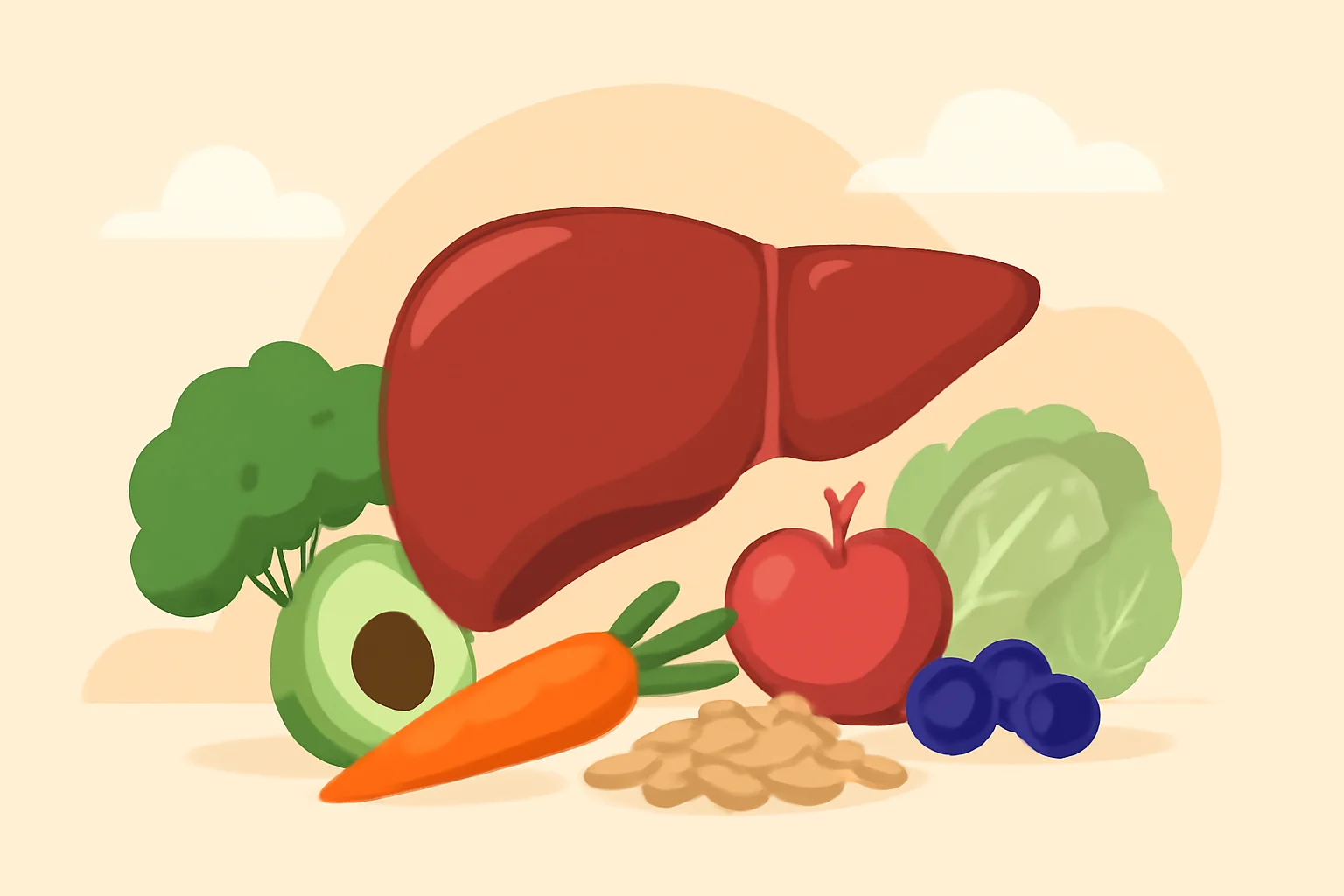
Fatty Liver Diet: Effective Nutrition for Liver Health and Weight Loss
The fatty liver, also known as non-alcoholic fatty liver disease, is an increasingly common health issue that is particularly associated with modern lifestyle and dietary habits. This condition of the liver indicates the accumulation of fat in liver cells, which can lead to various health problems if not treated in a timely manner. The fatty liver diet plays a crucial role in managing the disease and restoring liver health.
A proper diet can not only aid in the treatment of fatty liver but also improve the overall condition of the liver. When making dietary changes, it is important to pay attention to the ratio of nutrients, caloric intake, and the effects of different foods on the liver. The fatty liver diet is not just a dietary plan; it is also a lifestyle change aimed at preserving long-term health. In the following chapters, we will explore the principles of the fatty liver diet, recommended and avoided foods, as well as the advantages and disadvantages of the diet.
The Principles of the Fatty Liver Diet
The principles of the fatty liver diet include ensuring proper nutrient intake, reducing calories, and consuming foods that support liver function. The first and most important step when starting the diet is to reduce the intake of foods high in fat and sugar. Among fats, saturated fats and trans fats should be particularly avoided, as they can contribute to liver fat accumulation.
It is also wise to be cautious with carbohydrates. Refined carbohydrates, such as white bread, pastries, and sugary drinks, quickly raise blood sugar levels, which negatively affects the liver. Instead, it is advisable to focus on whole grains, vegetables, and legumes, which contain slowly absorbed carbohydrates.
Proteins also play an important role in the fatty liver diet. Lean meats, fish, eggs, dairy products, and plant-based protein sources such as beans and lentils can help in the regeneration of the liver. Additionally, foods rich in vitamins and minerals, such as leafy greens, berries, and nuts, have beneficial effects on liver function.
It is important to mention that the fatty liver diet is not only about food choices but also about eating habits. Regular, small meals, proper hydration, and regular physical activity can also contribute to the success of the diet and the preservation of liver health.
Recommended and Avoided Foods
During the fatty liver diet, it is important to be aware of which foods are beneficial for liver health and which should be avoided. Recommended foods include fresh vegetables and fruits, particularly berries, spinach, broccoli, and cabbage. These foods are rich in antioxidants and vitamins that can help in the regeneration of the liver.
Whole grains, such as brown rice, quinoa, and oatmeal, are also essential in the diet. They contain slowly absorbed carbohydrates that stabilize blood sugar levels and provide energy throughout the day.
Among protein sources, lean meats like chicken and turkey, as well as fish such as salmon and tuna, are recommended. These are rich in omega-3 fatty acids, which have anti-inflammatory effects and can help reduce liver fat content.
The list of foods to avoid is also important. Foods high in sugar, such as cakes, sweets, and sugary drinks, can significantly contribute to the development of fatty liver. Refined carbohydrates, such as white bread and pasta, should also be avoided. Additionally, foods high in saturated and trans fats, such as fast food and frozen meals, are not recommended during the diet.
It is also advisable to reduce the consumption of caffeine and alcohol, as these put stress on the liver. Alcohol, in particular, can have a harmful effect on fatty liver, so it is best to avoid its consumption during the diet.
Advantages and Disadvantages of the Fatty Liver Diet
The fatty liver diet has several advantages that directly contribute to the preservation of liver health. The first and foremost advantage is that a proper diet can help reduce fat accumulation in the liver, thereby improving liver function. Weight loss experienced during the diet not only improves the state of fatty liver but also has a generally beneficial effect on the overall body.
Following the fatty liver diet helps stabilize blood sugar levels, which is particularly important for diabetes prevention. With the proper intake of nutrients, the body’s energy supply also improves, enhancing overall well-being and vitality.
However, the fatty liver diet can also have disadvantages. Implementing dietary changes can initially pose challenges, as many people find it difficult to give up their usual foods. Strict adherence to the diet can be time-consuming, especially for those who need quick and convenient meal solutions in their daily lives.
Ensuring the proper ratio of nutrients can also be challenging, and an improperly structured diet can even lead to health deterioration. Therefore, it is important to follow the diet under the guidance and advice of a professional to avoid potential health issues.
In conclusion, following the fatty liver diet can be an important step in preserving liver health, but like any dietary plan, it can vary according to individual needs. Before implementing these changes, it is advisable to consult with a doctor or dietitian to find the most appropriate and safest solutions.
**Warning:** This article does not constitute medical advice. In case of health issues, everyone should follow the advice of their doctor.

